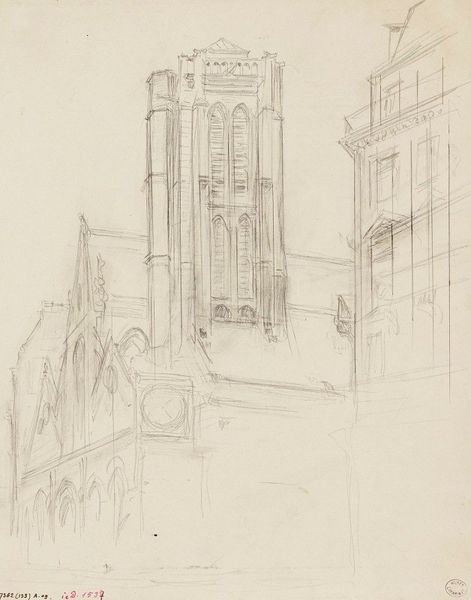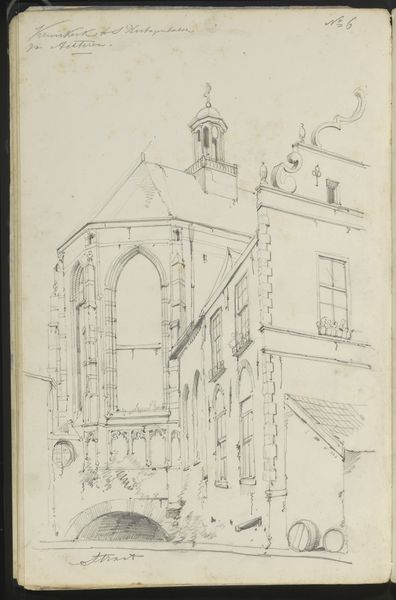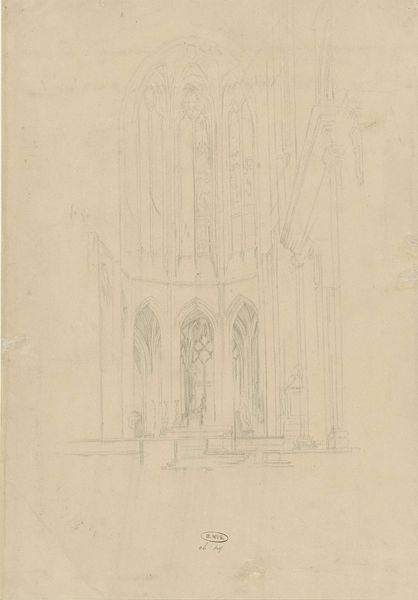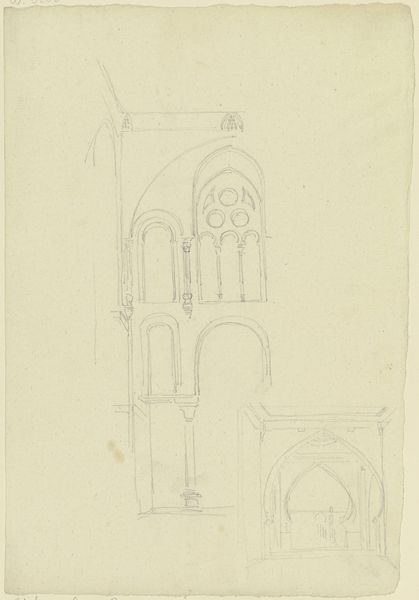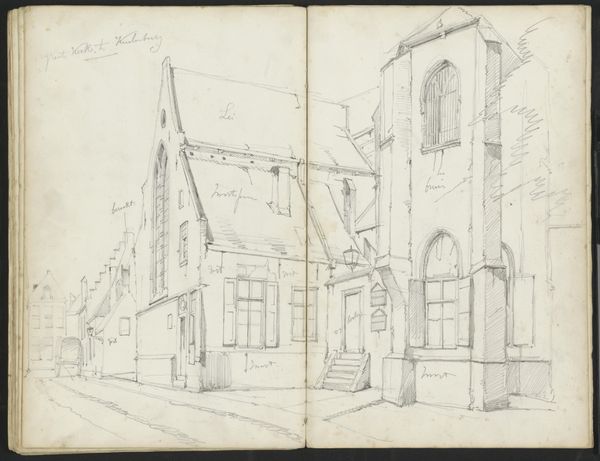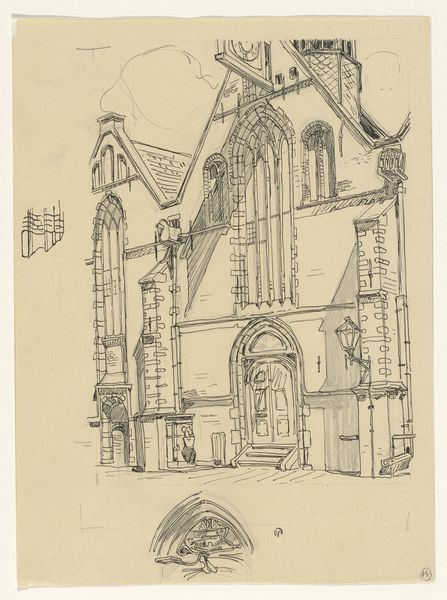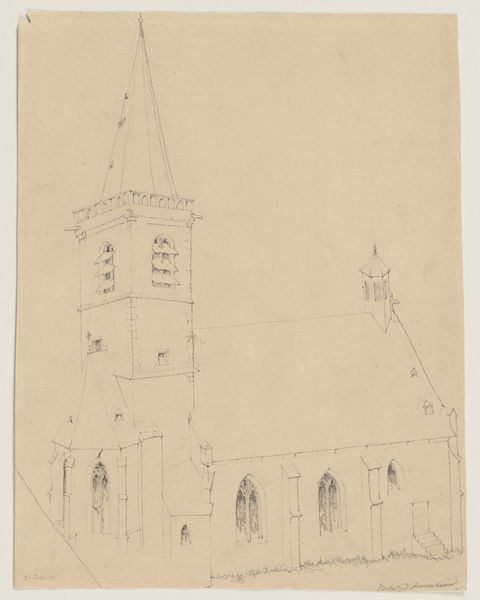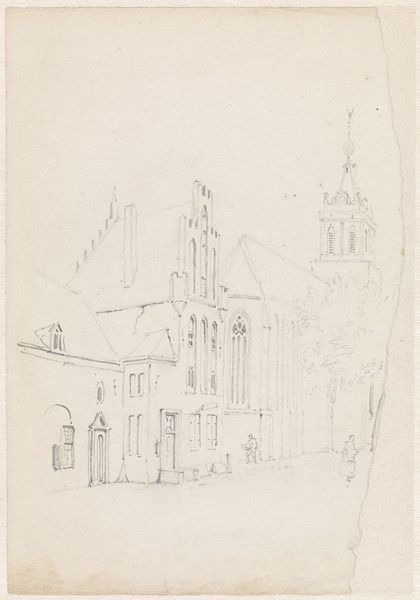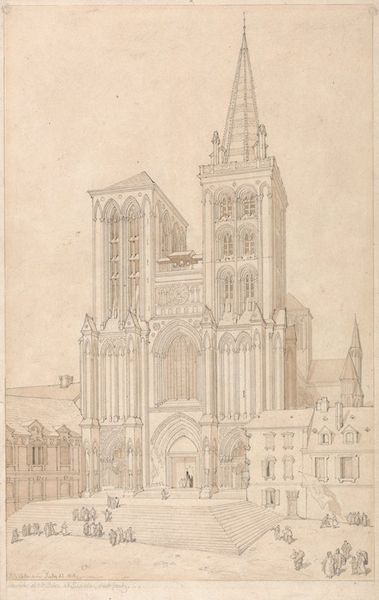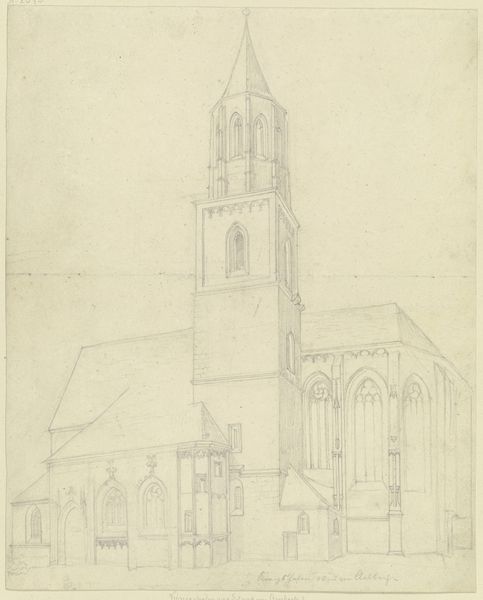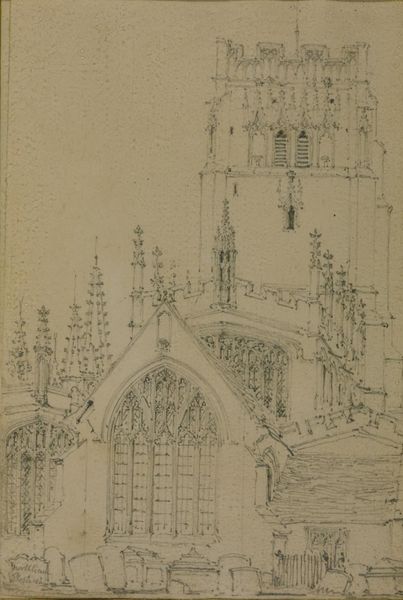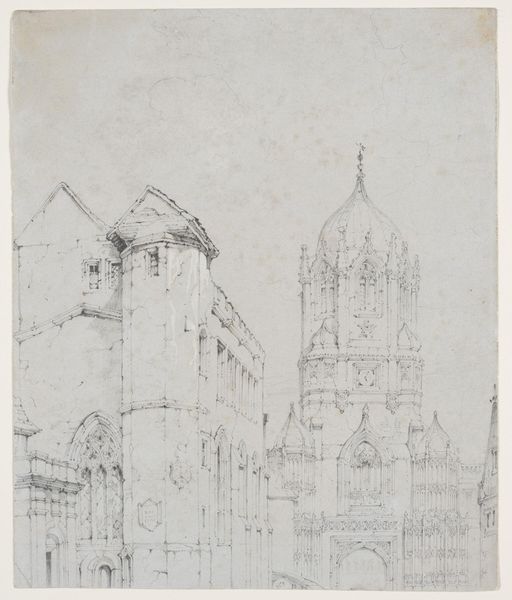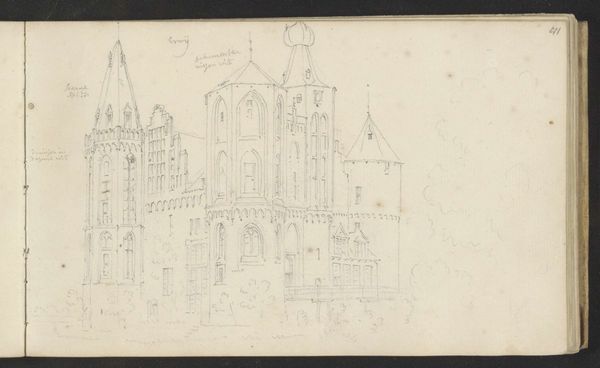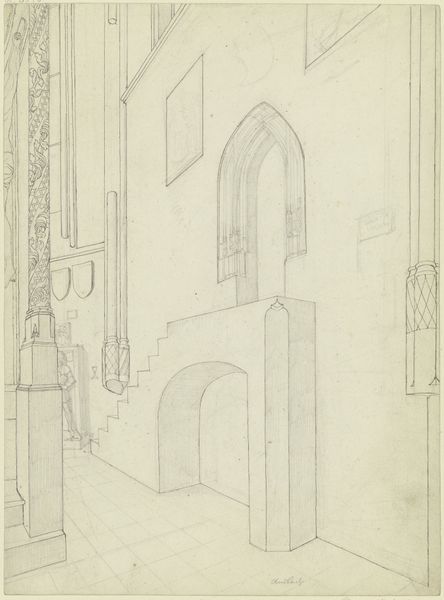
Gezicht op één van de torens van de Grote of Sint-Laurenskerk te Alkmaar 1849 - 1895
0:00
0:00
willemkoekkoek
Rijksmuseum
drawing, pencil, pen
#
drawing
#
aged paper
#
quirky sketch
#
dutch-golden-age
#
pen sketch
#
sketch book
#
landscape
#
personal sketchbook
#
sketchwork
#
pen-ink sketch
#
pencil
#
pen work
#
sketchbook drawing
#
pen
#
cityscape
#
sketchbook art
#
realism
Copyright: Rijks Museum: Open Domain
Curator: This pen and pencil drawing offers us a glimpse of Willem Koekkoek's "Gezicht op één van de torens van de Grote of Sint-Laurenskerk te Alkmaar," dating roughly from 1849 to 1895. Editor: It strikes me as a beautifully austere sketch. The light, airy rendering almost floats off the aged paper; there’s a definite calmness, despite the monumentality implied by the architectural subject. Curator: Precisely. Think about what a church, especially a grand structure like the Sint-Laurenskerk, represented to 19th-century viewers: spiritual authority, communal identity, even civic pride. Editor: You see that sense of stability and rooted history, definitely, but the lightness of the drawing style counteracts it slightly for me. It’s more a study, perhaps capturing a transient moment, a specific quality of light on stone. I like how he used simple line to represent a stone wall; it almost reads like the abstraction of architectural plans. Curator: It reminds us how faith itself can evolve—enduring, yet seen through different eyes in different eras. That tower has stood witnessing countless lives, its image imprinting itself on the cultural memory of Alkmaar. Consider how these structures can act as anchors, not just physically within the urban space, but symbolically within the psyche of the community. Editor: I notice how the architectural structure fills almost the entirety of the sketchbook page. The tight cropping emphasizes the structure, creating visual drama and directing the eye upwards. What are those notations to the side? Are they notes on the stones? Curator: Perhaps! They could relate to dimensions or the kind of stonework involved. Such a notebook brings into relief the historical function of architectural forms and how this period reflected society's emphasis on craftsmanship and order, giving sacred space a distinct look—a language to be deciphered. Editor: And, to be honest, just beautiful line work! Curator: I think that's the essence of what makes art and structures enduring—an evocative drawing, yes, and so much more than meets the casual eye!
Comments
No comments
Be the first to comment and join the conversation on the ultimate creative platform.
